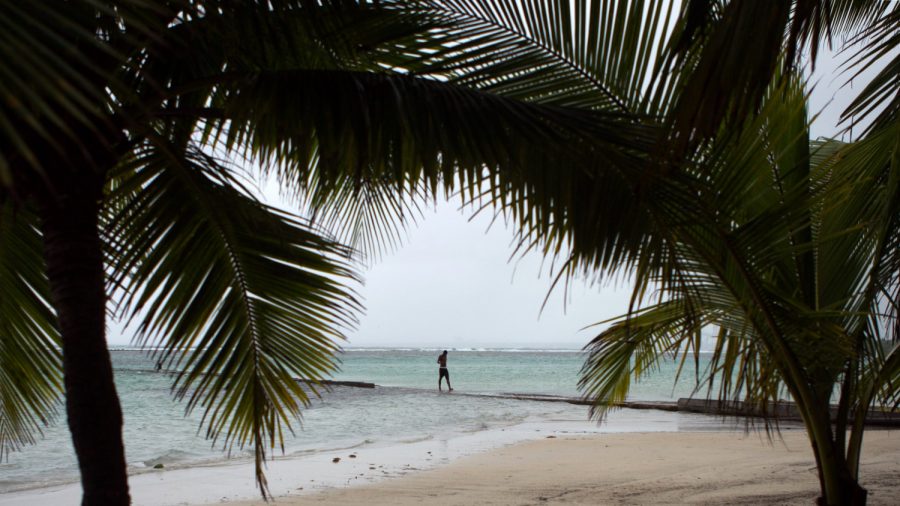A Louisiana woman who was rushed to the hospital less than a week after returning from the Dominican Republic has passed away, family and friends said.
Susan Simoneaux was in the Caribbean country with her new husband Keith Williams, enjoying a honeymoon.
Just days after they got back, she was rushed to a hospital on May 24 with fluid in her lungs, reported The Advocate. She died less than one month later.
Williams said he wasn’t aware that 13 Americans have died in the country in the past year in suspicious circumstances, and if he had known then he and his wife wouldn’t have gone there.
“I would have never went if I would have known,” Williams told WWL-TV. “I did not know to be honest with you.”
While friends and family members suspect a connection, a relative said doctors informed them her death may not be connected to the trip to the Dominican Republic.
Ronjae Mott, who owns the restaurant where Simoneaux and Williams were recently wed, said that the woman didn’t drink much alcohol.
Many of the people who have died in the Dominican Republic in the past 12 months were drinking alcohol in the hours or moments leading up to their deaths.
From @emily_woodruff_: A Louisiana woman passed away on Tuesday after a honeymoon trip to the Dominican Republic, one of several still-mysterious illnesses and deaths of travelers following trips to the popular tourist destination. https://t.co/t7fzuzd3TV
— New Orleans Advocate (@theadvocateno) June 21, 2019
“I know she drank wine. She told me she was having a great time,” Mott told The Advocate.
Mott and her husband had planned to travel to the Dominican Republic in July. “I canceled them on Monday,” she said.
“We have decided not to go,” Mott told WWL-TV. “If you’re planning a trip to the Dominican, I would strongly suggest that you reconsider.”

Analysis
John Trestrail, a forensic and clinical toxicologist who runs the Center for the Study of Criminal Poisoning in Los Lunos, New Mexico, told The Advocate that he’s been keeping track of the situation and his analysis has evolved over time.
“At first I thought carbon monoxide poisoning; then I thought organophosphate pesticides,” said Trestail.
He then shifted to thinking it was Legionnaire’s disease to blame.
“There’s something going on,” Trestail said. “It’s a hell of a coincidence to have that many people deceased.”
According to the Centers for Disease Control, Legionnaire’s is a severe pneumonia, or lung infection, that people can get when they breathe in mist containing the bacteria.
“One example might be from breathing in droplets sprayed from a hot tub that has not been properly cleaned and disinfected. Outbreaks are most commonly associated with buildings or structures that have complex water systems, like hotels, hospitals, long-term care facilities, and cruise ships,” the agency stated.
“Within these structures, the bacterium can become a health concern when it grows and spreads in human-made water systems, like hot tubs, cooling towers, hot water tanks, large plumbing systems, and decorative fountains.”

There’s been at least one confirmed case of Legionnaire’s disease in the Dominican Republic in the past year. Connecticut resident Shirley Horan told WFSB in 2017 that she was diagnosed with the disease after getting sick in the country and returning home to get a check-up.
“I couldn’t physically talk, I couldn’t breathe to talk and that was the scary part,” Horan said.
She survived but spent 11 days in an intensive care unit. “I definitely think I picked it up from the hotel,” Horan said.
Another expert said symptoms of those who died or got sick and survived are consistent with poisoning.
In an interview with The New York Times, Tom Inglesby, director of the Johns Hopkins Center for Health Security, said reported symptoms such as pulmonary edema, bleeding, and vomiting blood could point to poisoning, even if accidental.
“It’s rare for travelers to die of unknown causes like this, and to have a high number of them in a relatively short period of time is alarming, shocking, sad,” Dr. Inglesby said.
“It’s something that investigators should be able to get to the bottom of.”

